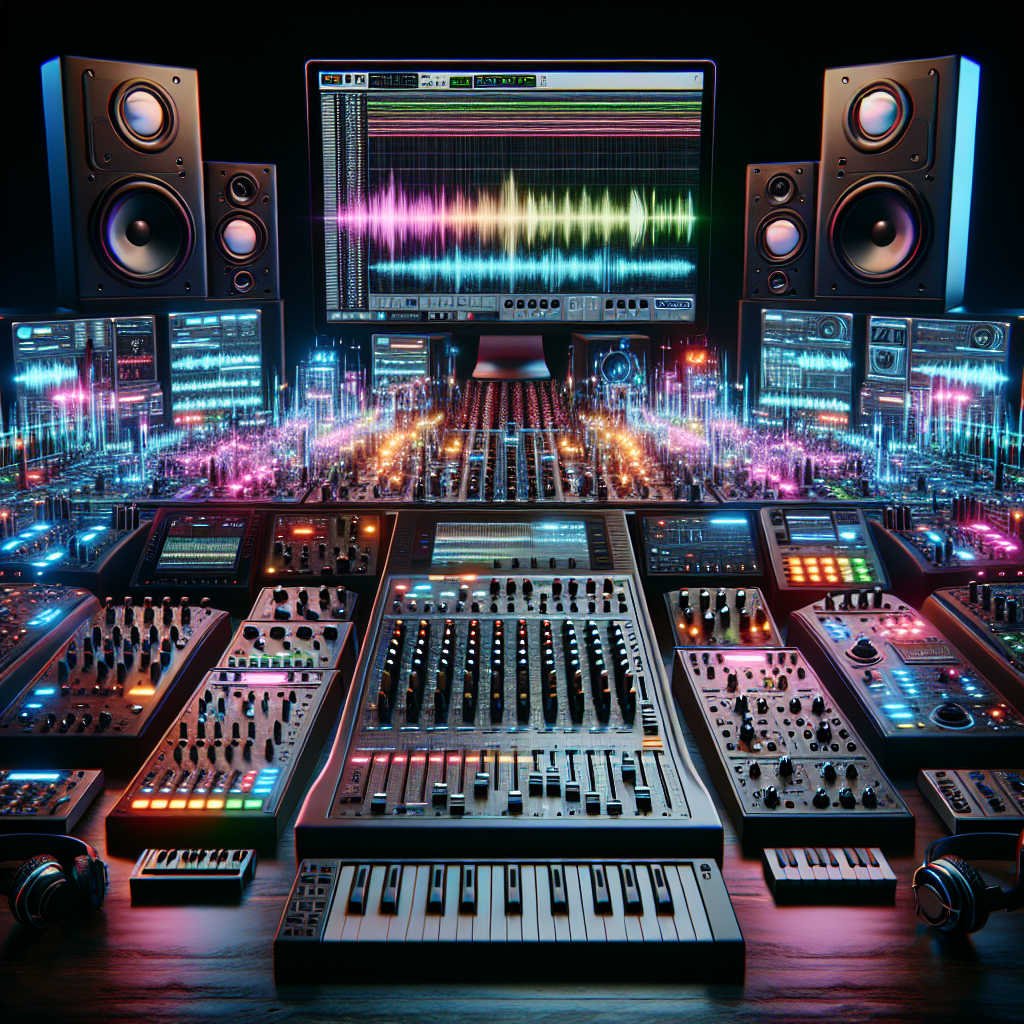The Revolutionary Power of Virtual Studio Technology (VST)
Virtual Studio Technology (VST) is a software interface that integrates audio synthesizer and effect plugins with audio editors and amateur recording systems. Created by Steinberg in 1996, it has revolutionized the way we create and manipulate sound, giving musicians and audio technicians alike unprecedented access to a whole world of synthetic and manipulated sounds. VST’s compatibility with various platforms and its ability to deliver high-quality output make it a game-changer in the world of digital audio production.
The Essentials of Virtual Studio Technology (VST)
VST works by employing digital signal processing to simulate traditional recording studio hardware with software. It effectively transforms any suitable computer into a full-fledged recording studio. VST is comprised of two types: VST instruments and VST effects. VST instruments, also known as VSTi, can be MIDI controllers and synthesizers. They create audio and are triggered by MIDI data. On the other hand, VST effects process audio data such as echo, reverb, and more.
An added advantage is the size and price of the VST’s. Most hardware equipment is both expensive and bulky. However, with VST’s, you can have a virtual room full of thousands of dollars worth of gear on your hard drive running on a laptop.
The Impact of VST on the Music Industry
The impact of VST’s on the music industry is huge. It has democratized music production by making studio equipment and effects accessible to anyone with a computer. Independent and amateur musicians can now accurately replicate the sounds of expensive studio hardware, giving them more creative freedom and reducing production costs. Many professional recording studios also use VST’s to extend their equipment capabilities, to experiment with new sounds, and to limit the need for costly and space-consuming hardware.
VST has also stimulated development and innovation in digital music. The explosion of plugins has resulted in an exciting array of effects and instruments, which has in turn pushed the boundaries of what is possible in sound.
Future Developments
The future of VST’s looks remarkably bright. With constant advancements in digital technology, VST instruments and effects are becoming increasingly sophisticated and realistic. The next generation of VST’s may even provide completely immersive virtual reality experiences, transforming the way we create and interact with sound in truly revolutionary ways.
Conclusion
The power of Virtual Studio Technology (VST) cannot be overstated. Its impact on music production, both professional and amateur, has been profound. By turning the computer into a versatile and highly capable sound studio, VST has forever changed the landscape of music production. With rapid advancements in technology, the potential of VST continues to grow, promising even greater capabilities in the years to come.
Frequently Asked Questions (FAQs)
1. What is Virtual Studio Technology (VST)?
VST is a software interface that integrates audio synthesizer and effect plugins with audio editors and amateur recording systems. It essentially transforms any suitable computer into a fully operational recording studio.
2. Who created VST?
VST was developed by Steinberg in 1996. It aimed to empower musicians and sound technicians with a more accessible means of creating and manipulating sound.
3. What are the components of VST?
VST is comprised of VST instruments (VSTi), which can be MIDI controllers and synthesizers, and VST effects, which process audio data.
4. How has VST impacted the music industry?
VST has democratized music production, making it more accessible by replicating expensive studio hardware. It has allowed musicians more creative freedom while reducing production costs.
5. What might the future hold for VST?
With advancements in digital technology, Future VST instruments and effects are likely to be increasingly sophisticated and realistic, possibly providing immersive virtual reality experiences.

